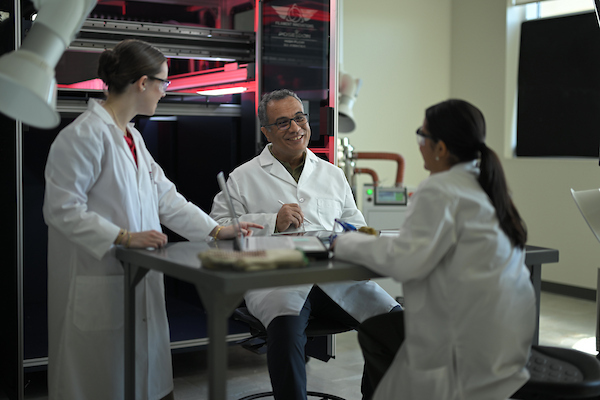
Department of Chemistry and Physics
Explore the universe of possibilities — Degrees and minors in Chemistry, Physics, Astrophysics and Engineering Technology

Explore the universe of possibilities — Degrees and minors in Chemistry, Physics, Astrophysics and Engineering Technology
The Department of Chemistry and Physics offers a Bachelor of Science in Chemistry,
Bachelor of Interdisciplinary Studies in Astrophysics and a Bachelor of Science in
Electronics Engineering Technology. In the Fall of 2025, we will offer a Bachelor
of Science in Electrical and Electronics Engineering. We will also offer a contract
major in Physics. Please contact the department chair directly regarding the Astrophysics
and Physics options.
We also offer a minor in Chemistry, minor in Physics, a minor in Electronics Engineering
Technology and a minor in Astronomy and Astrophysics. You will find links to more
specific information about the various programs listed above in the top tool bar.
Please go through the different options carefully, and feel free to contact us regarding
any questions you might have concerning our course/program offerings.
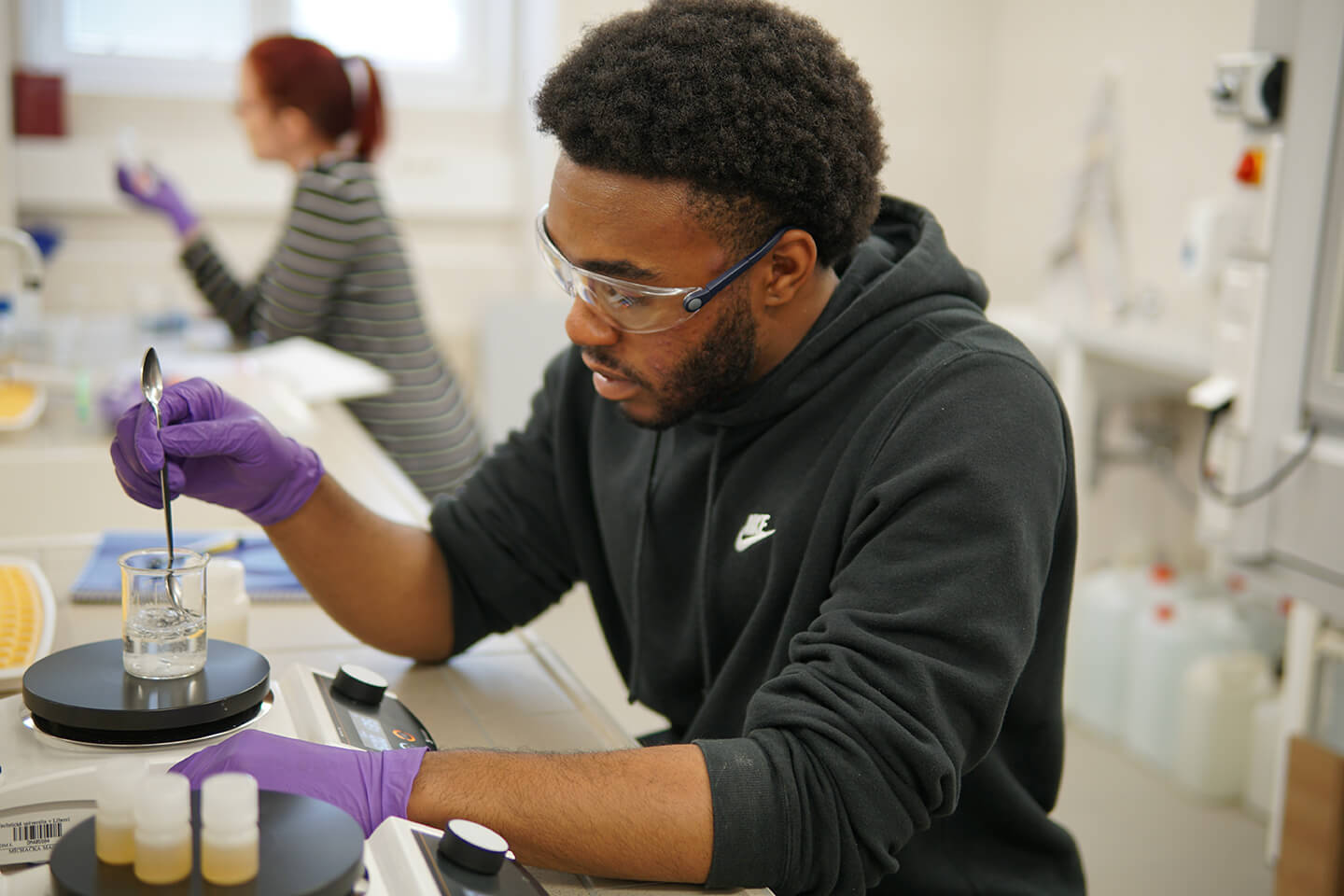
The world around us is composed of matter, and chemistry explains the composition of matter, its transformations, and the energies that are associated with these transformations. Students studying chemistry at Troy University will receive training in the theoretical underpinnings of the subject as well as hands-on experience in laboratory skills. The small class sizes allow faculty members and students to interact frequently and on personal levels.
Chemistry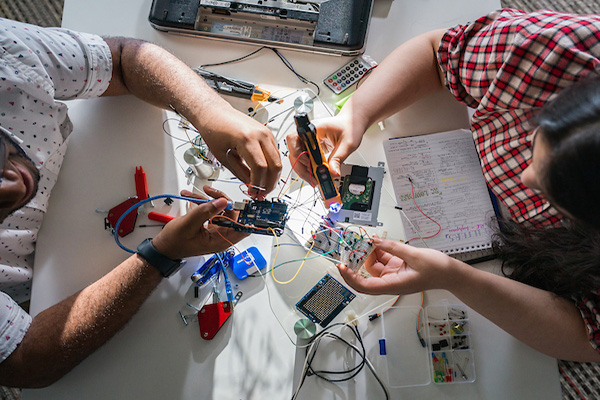
The Electronics Engineering Technology degree program at Troy University primarily focuses on instilling knowledge, skills and a solid foundation in fundamental theory and principles in electronics circuits and devices, microcontrollers and robotics and on developing the student's ability to apply in-class concepts to design, simulate and analyze various analog and digital systems in a well-equipped laboratory environment.
Electrical and Electronics Technology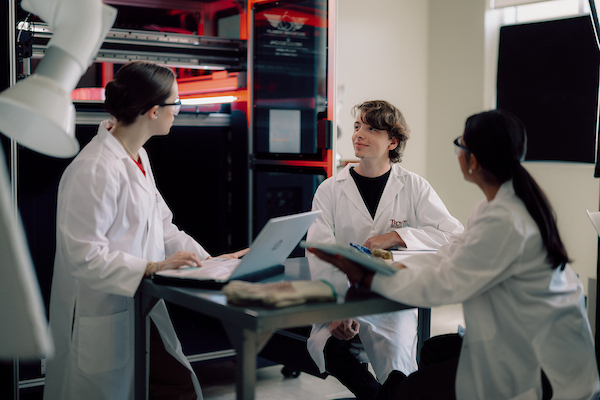
The BIS in Astrophysics includes fulfilling the requirements for a minor in math, physics and astronomy and astrophysics along with the standard general studies curriculum. In addition to employment in the public/private sector, this program prepares students to continue their graduate education in mathematics, physics, astronomy and astrophysics.
Interdisciplinary Studies in Astrophysics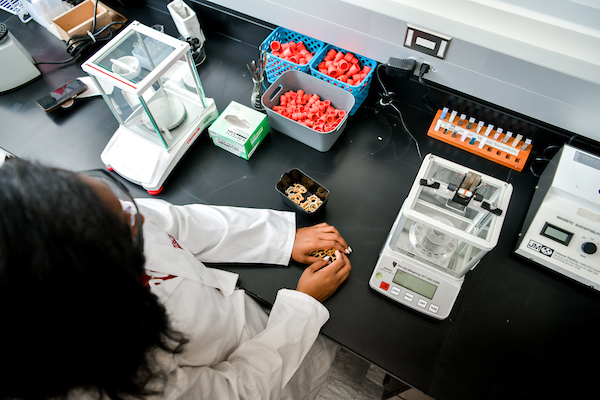
Physics minor courses feature General Physics I, General Physics I Lab, General Physics II, General Physics II Lab, Physics I with Calculus, Physics I with Calculus Lab, Physics II with Calculus, Physics II with Calculus Lab, Mathematical Methods, Scientific Computing, Thermodynamics, Waves and Optics, Mechanics, Electricity and Magnetism, Electromagnetic Fields, Quantum Mechanics I and II, Relativity, Particle Physics and more.
Physics Minor
In the current era of information age, we see a phenomenal surge in electronics and
electronic based devices. Practically we find electronics in everything we see, touch
and use. So, what is electronics? In a nutshell, Electronics is a branch of science
that fundamentally deals with the control, behavior, and effects of electrons and
electric current within the electronic components and electronic devices like resistors,
capacitors, diodes and transistors. Electronics engineering technologists seek to
understand the fundamental concepts and working principles of various electronic circuits
and devices and typically use them to design, build, code, install, test, troubleshoot,
repair, and modify developmental and production electronic components, equipment,
and systems such as industrial/computer controls, manufacturing systems, instrumentation
systems, communication systems, and power electronic systems.
Learn About Electronics Engineering
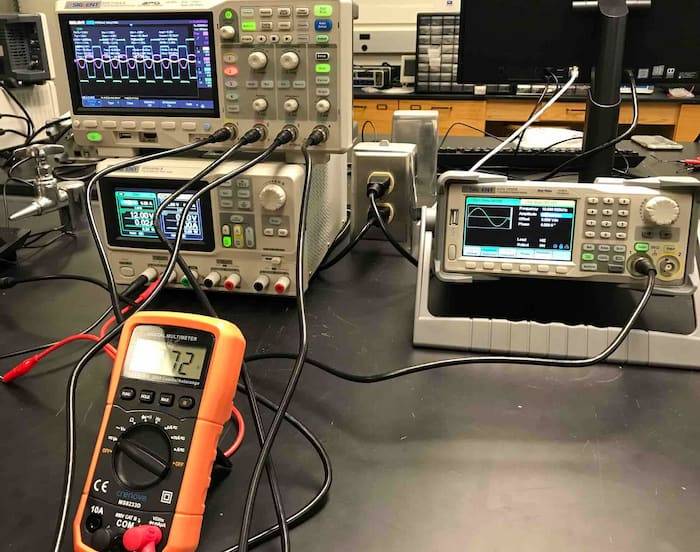
The Department of Chemistry and Physics at Troy University boasts a diverse and accomplished
faculty dedicated to excellence in teaching, research and student mentorship. Faculty
members bring expertise across a wide range of disciplines, including polymer chemistry,
biochemistry, electrical engineering, analytical chemistry, astrophysics and general
relativity.
The department's commitment to interdisciplinary research and hands-on learning provides
students with opportunities to engage in cutting-edge projects and prepare for careers
in science and technology.
